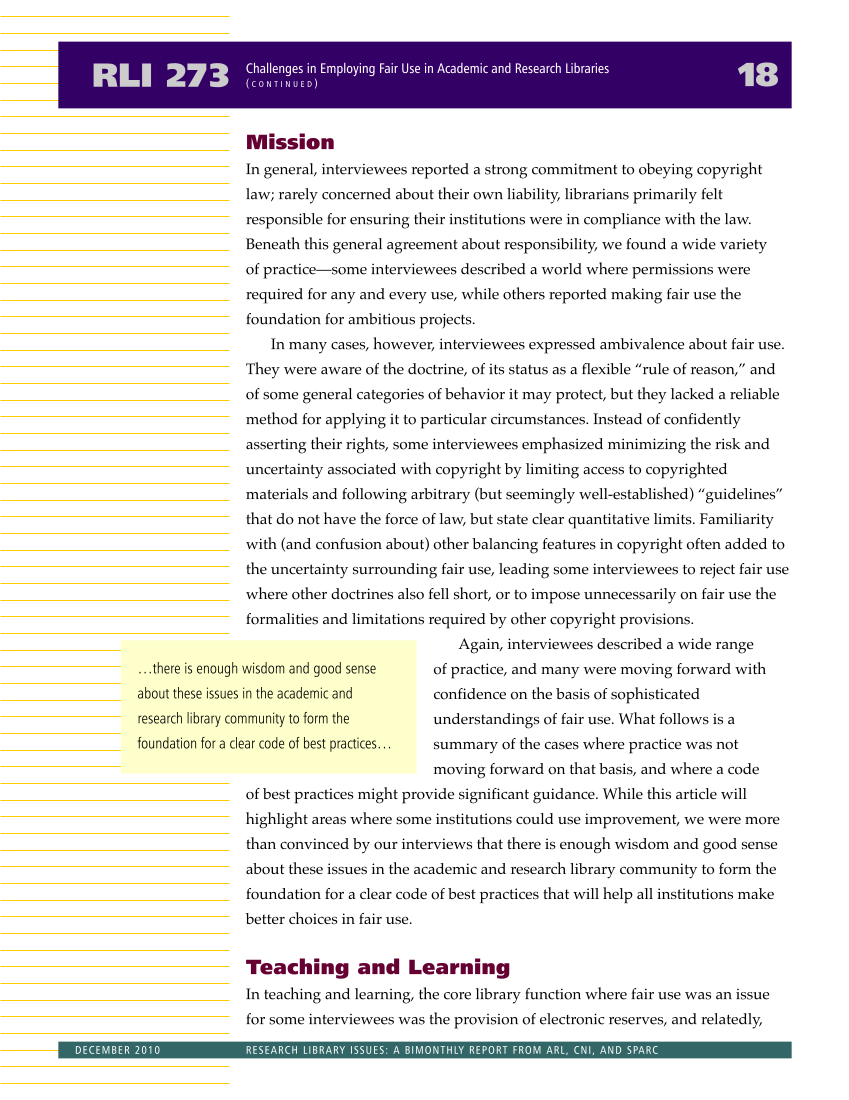Mission In general, interviewees reported a strong commitment to obeying copyright law rarely concerned about their own liability, librarians primarily felt responsible for ensuring their institutions were in compliance with the law. Beneath this general agreement about responsibility, we found a wide variety of practice—some interviewees described a world where permissions were required for any and every use, while others reported making fair use the foundation for ambitious projects. In many cases, however, interviewees expressed ambivalence about fair use. They were aware of the doctrine, of its status as a flexible “rule of reason,” and of some general categories of behavior it may protect, but they lacked a reliable method for applying it to particular circumstances. Instead of confidently asserting their rights, some interviewees emphasized minimizing the risk and uncertainty associated with copyright by limiting access to copyrighted materials and following arbitrary (but seemingly well-established) “guidelines” that do not have the force of law, but state clear quantitative limits. Familiarity with (and confusion about) other balancing features in copyright often added to the uncertainty surrounding fair use, leading some interviewees to reject fair use where other doctrines also fell short, or to impose unnecessarily on fair use the formalities and limitations required by other copyright provisions. Again, interviewees described a wide range of practice, and many were moving forward with confidence on the basis of sophisticated understandings of fair use. What follows is a summary of the cases where practice was not moving forward on that basis, and where a code of best practices might provide significant guidance. While this article will highlight areas where some institutions could use improvement, we were more than convinced by our interviews that there is enough wisdom and good sense about these issues in the academic and research library community to form the foundation for a clear code of best practices that will help all institutions make better choices in fair use. Teaching and Learning In teaching and learning, the core library function where fair use was an issue for some interviewees was the provision of electronic reserves, and relatedly, RLI 273 18 Challenges in Employing Fair Use in Academic and Research Libraries ( C O N T I N U E D ) DECEMBER 2010 RESEARCH LIBRARY ISSUES: A BIMONTHLY REPORT FROM ARL, CNI, AND SPARC …there is enough wisdom and good sense about these issues in the academic and research library community to form the foundation for a clear code of best practices…







































